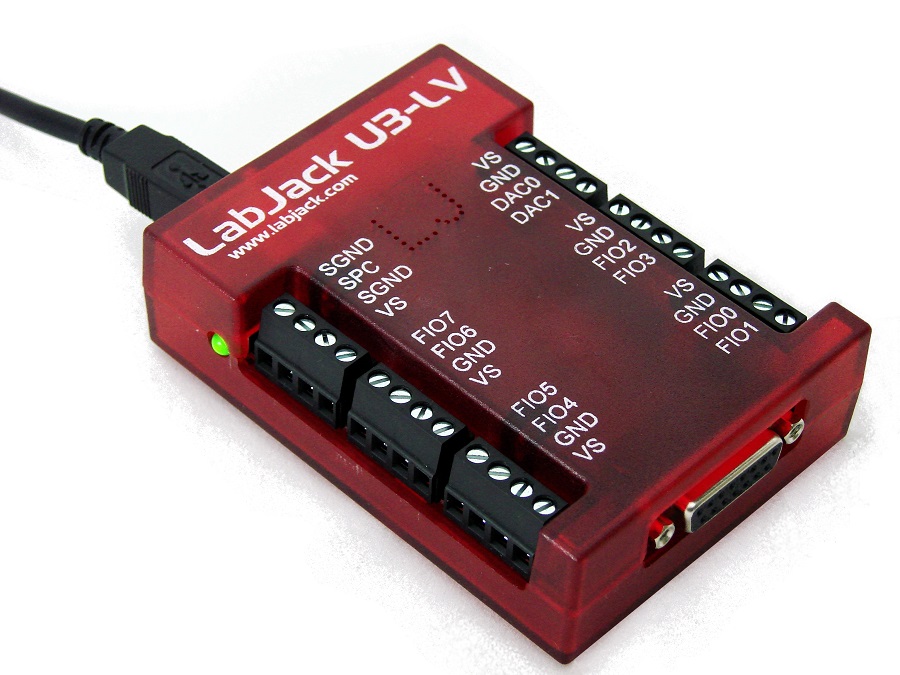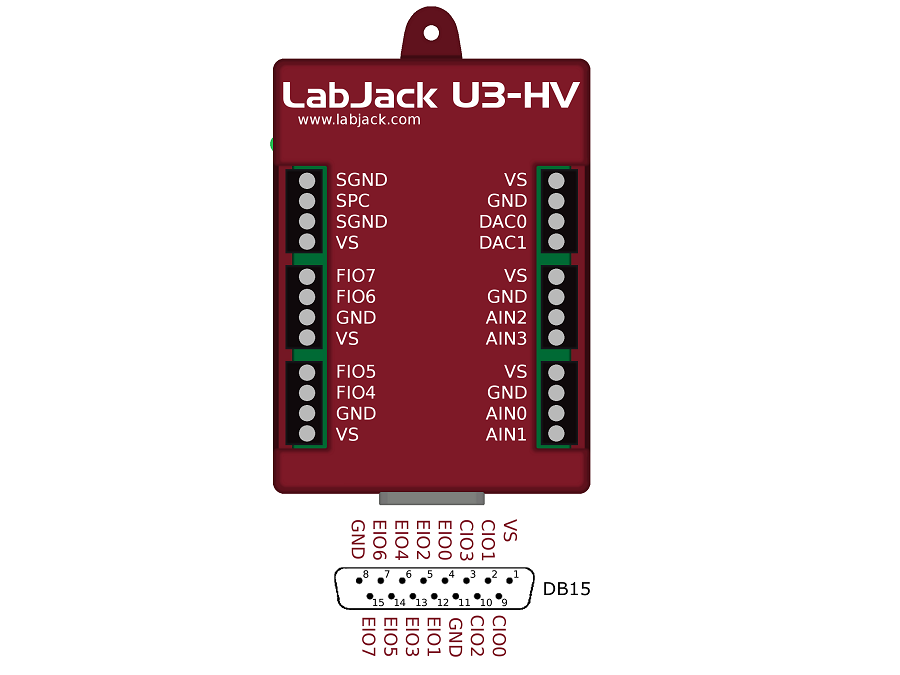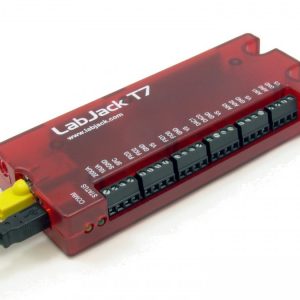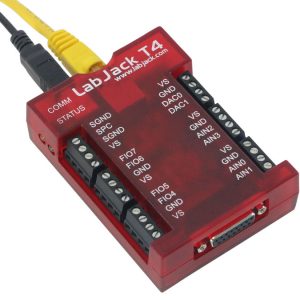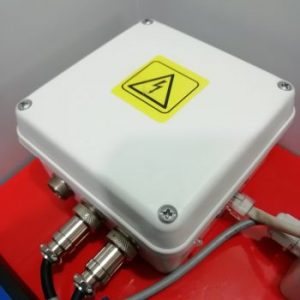DAQ U3
USB Multifunction DAQ
The U3 series is a versatile product for measurement and control within simple analog and digital systems. With the option to configure its I/O as either analog or digital, users have flexibility in choosing sensors for their application. Common applications include hobbyist projects, educational programs, industrial control and monitoring, and prototype development.
Descripción
Flexible I/O:
The first 16 I/O lines (FIO and EIO ports) on the LabJack U3-LV can be individually configured as digital input, digital output, or analog input. In addition, up to 2 of these lines can be configured as timers, and up to 2 of these lines can be configured as counters. On the U3-HV, the first 4 flexible I/O are replaced with dedicated high-voltage analog inputs.
The first 8 flexible I/O lines (FIO0-FIO7) appear on built-in screw terminals. The other 8 flexible I/O lines (EIO0-EIO7) are available on the DB15 connector.
For more information, see Section 2.5 – Flexible I/O (FIO/EIO) of the U3 Datasheet.
Analog Inputs:
The LabJack U3 has up to 16 analog inputs available on the flexible I/O lines. Single-ended measurements can be taken of any line compared to ground, or differential measurements can be taken of any line to any other line.
Analog input resolution is 12-bits. The range of single-ended low-voltage analog inputs on the U3-LV is typically 0-2.4 volts or 0-3.6 volts, and the range of differential analog inputs is typically ±2.4 volts (pseudobipolar only). For valid measurements, the voltage on every analog input pin, with respect to ground, must be within -0.3 to +3.6 volts.
On the U3-HV, the first 4 flexible I/O are replaced with dedicated high-voltage analog inputs. The input range of these channels is ±10 volts or -10/+20 volts. The remaining 12 flexible I/O are still available as described above, so the U3-HV has 4 high-voltage analog inputs and up to 12 low-voltage analog inputs.
Command/response (software timed) analog input reads typically take 0.6-4.0 ms depending on number of channels and communication configuration. Hardware timed input streaming has a maximum rate that varies with resolution from 2.5 ksamples/s at 12-bits to 50 ksamples/s at about 10-bits.
Analog Outputs:
The LabJack U3 has 2 analog outputs (DAC0 and DAC1) that are available on the screw terminals. Each analog output can be set to a voltage between 0 and 5 volts with 10-bits of resolution.
The analog outputs are updated in command/response mode, with a typical update time of 0.6-4.0 ms depending on communication configuration. The analog outputs have filters with a 3 dB cutoff around 16 Hz, limiting the frequency of output waveforms to less than that.
Digital I/O:
The LabJack U3 has up to 20 digital I/O channels. 16 are available from the flexible I/O lines, and 4 dedicated digital I/O (CIO0-CIO3) are available on the DB15 connector. Each digital line can be individually configured as input, output-high, or output-low. The digital I/O use 3.3 volt logic and are 5 volt tolerant.
Command/response (software timed) reads/writes typically take 0.6-4.0 ms depending on communication configuration. The first 16 digital inputs can also be read in a hardware timed input stream where all 16 inputs count as a single stream channel.
Timers:
Up to 2 flexible I/O lines can be configured as timers. The timers are very flexible, providing options such as PWM output, pulse/period timing, pulse counting, and quadrature input.
Counters:
Up to 2 flexible I/O lines can be configured as 32-bit counters.
I/O Protection:
All I/O lines on the U3 are protected against minor overvoltages. The FIO lines can withstand continuous voltages of up to ±10 volts, while the EIO/CIO lines withstand continuous voltages of up to ±6 volts.
High Channel Count Applications:
By using USB hubs, many LabJacks can be interfaced to a single PC, providing an inexpensive solution for high channel count applications.


